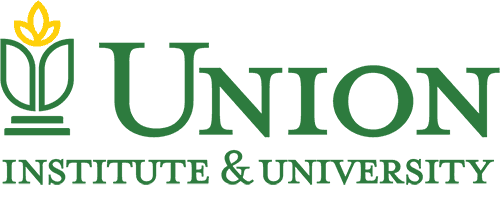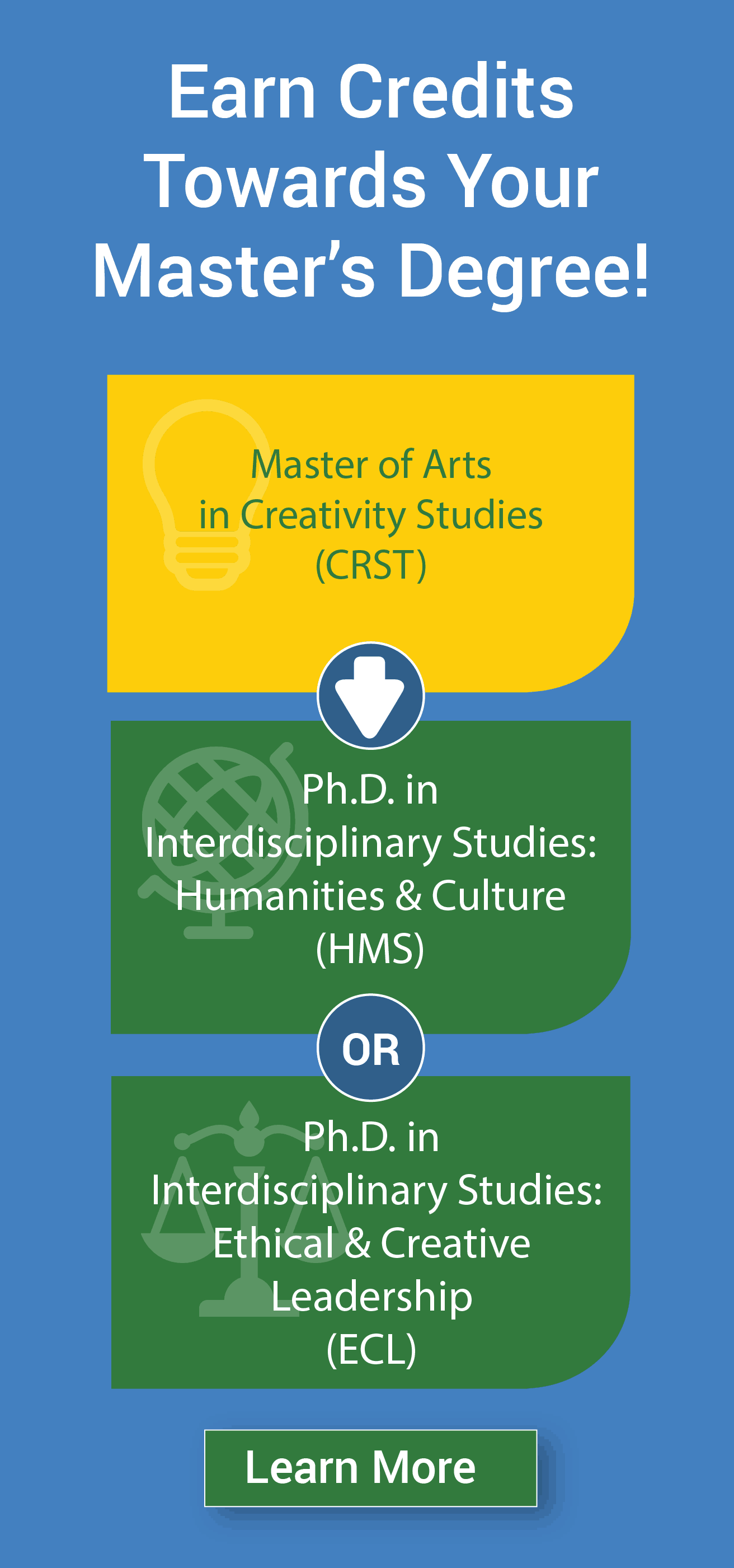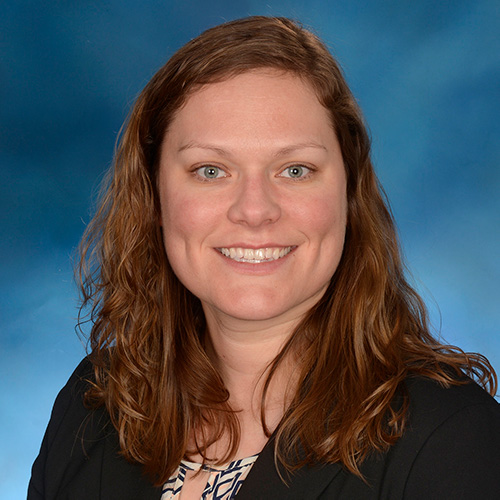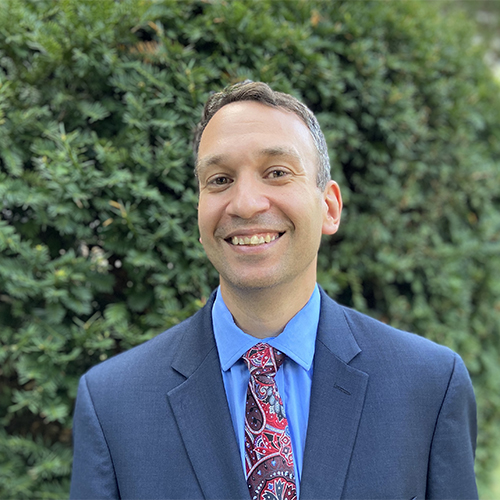Applied Nutrition and Dietetics
Future Education Model Graduate Program
Nutrition is not only a fundamental human need, but also one of the key influencers in the determinants of health. When health needs arise, the public turns to the world’s leading experts in food and nutrition – Registered Dietitian Nutritionists (RDNs).
The Applied Nutrition and Dietetics Program is a new and innovative, entry-level graduate program that prepares students to take the Commission on Dietetic Registration (CDR) credentialing examination to become a Registered Dietitian Nutritionist (RDN). The program uses competency-based education that integrates online didactic coursework with supervised experiential learning. Throughout the program, students will acquire the skills to examine underlying assumptions, explore issues from multiple perspectives and develop new ways of thinking critically, which will prepare them to be future leaders in nutrition and dietetics.
Future Education Model Graduate Program
Nutrition is not only a fundamental human need, but also one of the key influencers in the determinants of health. When health needs arise, the public turns to the world’s leading experts in food and nutrition – Registered Dietitian Nutritionists (RDNs).
The Applied Nutrition and Dietetics Program is a new and innovative, entry-level graduate program that prepares students to take the Commission on Dietetic Registration (CDR) credentialing examination to become a Registered Dietitian Nutritionist (RDN). The program uses competency-based education that integrates online didactic coursework with supervised experiential learning. Throughout the program, students will acquire the skills to examine underlying assumptions, explore issues from multiple perspectives and develop new ways of thinking critically, which will prepare them to be future leaders in nutrition and dietetics.
A Unique Combination of Online and Experiential Learning
Union Institute and University’s Applied Nutrition and Dietetics major is offered exclusively online and offers opportunities for students to gain knowledge and skills from unique and direct experiences outside of traditional academic methods.
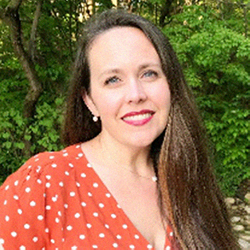
What makes Union’s M.A. with a major in Applied Nutrition and Dietetics unique?
“Our program is offered exclusively online, which allows for the ability for students to attend classes on their time. The small class size allows students to form lasting mentoring relationships with faculty. ”
Lisa Akers, PhD, RDN, IBCLC, RLC, FAND
Applied Nutrition and Dietetics Advisor
Careers
applying your degree to real world experience
Students who graduate from our program and successfully complete the RDN credentialing examination will be qualified to work in a wide variety of settings. Some may work in hospitals or other health care facilities, developing nutrition plans and providing nutrition education to patients. Others may manage food service operations in institutions such as schools, universities and correctional facilities. Sports nutrition, corporate wellness programs and the food industry are other possibilities. Teaching opportunities also exist in public health settings and universities. Some graduates may even go into nutrition-related research or private practice.
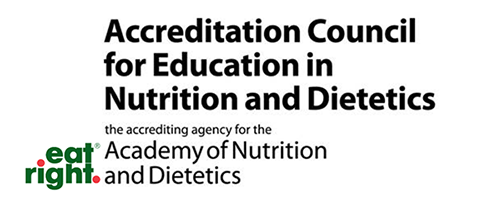
Beginning in 2024, a master’s degree will be required in order to gain candidacy to sit for the Registered Dietitian Nutritionist (RDN) Examination. Our graduate demonstration program, under the Future Education Graduate Model Standards, is a candidate for accreditation. The Accreditation Council for Education in Nutrition and Dietetics (ACEND) released the Future Education Model Accreditation Standards for programs in nutrition and dietetics (www.eatrightpro.org/FutureModel). These accreditation standards integrate didactic coursework with supervised experiential learning in a competency-based curriculum designed to prepare nutrition and dietetics practitioners for future practice. Program graduates will be eligible to take the Commission on Dietetic Registration (CDR) credentialing exam to become a Registered Dietitian Nutritionist (RDN).
Union Institute & University’s M.A. with a major in Applied Nutrition and Dietetics has been granted candidate status by:
Accreditation Council for Education in Nutrition and Dietetics
120 South Riverside Plaza
Suite 2190
Chicago, Illinois 60606-6995
Phone (800)-877-1600 ext 5400
E-mail: acend@eatright.org
www.eatright.org/ACEND
Applied Nutrition and Dietietics Structure & Courses
• 47 credit hour program
• Full-time and part-time options
• January, May and August start dates
• Complete your degree in as little as 24 months
The program presents courses in an organized, sequential manner with each term and year building upon prior learning experiences. Online courses can be accessed 24/7 and include structured assignments that need to be completed within specific periods as indicated in the course syllabi. These courses include full-featured communication resources, allowing for both synchronous and asynchronous interaction between and among students and faculty.
*An undergraduate chemistry course and an undergraduate nutrition course are required pre-requisites to enter the program.
**Students must successfully achieve all of the ACEND competencies contained within each course, earn a B or better in each course, and maintain a 3.0 GPA throughout the program.
Admission Requirements
Admission to the Master of Arts Program is open to applicants who hold a baccalaureate degree from a regionally accredited institution or a recognized international institution of higher education. Admission decisions are made on an individual basis. Before admission is granted, each application is reviewed by the Admissions Committee to determine if the applicant’s academic history and preparation is satisfactory. Students may be admitted into the M.A. on a full or provisional status.
Application Requirement Details
To apply for admission in the M.A. Program, applicants should submit a UI&U application accompanied by:
- Official transcripts detailing an earned Bachelor’s degree with a GPA of 3.0 or greater, if conferred GPA is less than 3.0, transcripts from all universities and/or colleges attended must be provided.
- A grade point average of 3.0 or better (on a 4.0 scale) in the major field of study and in all subsequent graduate work. An official transcript with the baccalaureate degree noted from the school(s) attended must be sent directly from the undergraduate school to the admission office. Candidates who do not have a 3.0 GPA may be considered for admittance to the program. Such exceptions are considered on a case-by-case basis and may require additional coursework.
- Students with international transcripts are responsible for obtaining an evaluation of their transcripts through an international evaluation service.
- A statement of purpose that describes the applicant’s reasons for applying and the type of research they would like to do in the M.A. The statement of purpose should also demonstrate graduate-level writing skills and command of the English language.
- Three letters of recommendation from people who know the applicant academically or professionally and who can speak to their potential to succeed in graduate study.
- An updated resume.
- Union Institute & University Catalog Page 34 of 496 July 1, 2019 – June 30, 2020
- English proficiency is required of all applicants whose first language is not English. Most students fulfill the English requirement by taking the Test of English as a Foreign Language (TOEFL). At both the graduate and undergraduate levels, our TOEFL requirement is 79 on the Internet-based test. See http://www.ets.org/toefl and https://www.myunion.edu/academics/academic-services/international-student-services/english-proficiency-requirement/. Students may also demonstrate English proficiency by successfully completing a valid undergraduate or master’s level degree for which the language of instruction was English.
Supervised Experiential Learning
Supervised experiential learning is incorporated and interwoven throughout the program with classroom-based activities and off-site collaborative projects and rotations with local food and nutrition agencies and organizations.
More details about Supervised Experiential Learning
Supervised experiential learning sites are remote and student-identified. Students are required to have these rotations secured before registering for their first course. Union Institute and University’s Clinical and Curriculum Coordinator works directly with students to select and secure experiential learning sites, obtain Affiliate Agreements with each of those sites, obtain the appropriate background checks and complete any additional paperwork in order for students to fulfill their experiential learning requirements. Students should contact the Clinical and Curriculum Coordinator immediately after learning of their acceptance into the program.
The supervised experiential learning site must be conducive to learning and be able to provide experiences to meet specific accreditation-required competencies. Preceptors at the facility must have the appropriate credentials and expertise relative to their area of practice. The facility must be willing to assign the preceptors and staff the appropriate length of time required to educate and train the students. It is required that all preceptors and staff at the training site recognize that students are there for learning purposes and are not to routinely replace employees. An affiliation agreement will be executed by Union Institute & University administration and the facility providing experiences.
Reasons for discontinuation of a supervised practice site include failure to provide the students with the required learning opportunities to meet specific required competencies and student complaints related to unethical or inappropriate behaviors experienced at the site.
Each year, the appropriateness of supervised practice facilities will be reviewed by the program based on changes in the program and/or changes that have occurred in the supervised practice facility that might impact the ability of the facility to provide the needed learning experiences.
Preceptors for each experiential learning site will be required to submit their curriculum vitaes/resumes, which will be reviewed by the Program Director and the Clinical and Curriculum Coordinator to ensure that they have the appropriate education and experience to guide students.
Additional information about experiential learning can be found in our University Catalog.
Meet Our Applied Nutrition and Dietetics Faculty
Mission
We are dedicated to preparing highly motivated, competent, and socially responsible entry-level Registered Dietitian Nutritionists (RDNs) with the knowledge and skills gained through experiential learning and scholarship to engage in a lifetime of empowering and educating others.
Program Goals and Objectives
Goal 1: Prepare competent, entry-level graduates who reflect the ability to integrate theory and practice in decision-making.
Objective I: “At least 80% of program graduates complete program/degree requirements within 3-3.5 years (150% of the program length)”. (RE 2.3.b.1)
Objective 2: “Of graduates who seek employment, 50% are employed in nutrition and dietetics or related fields within 12 months of graduation”. (2.3.b.2)
Objective 3: “70% of program graduates take the CDR credentialing exam for dietitian nutritionists within 12 months of program completion”. (2.3.b.4.a)
Objective 4: “The program’s one-year pass rate (graduates who pass the registration exam within one year of the first attempt) on the CDR credentialing exam for dietitian nutritionists is at least 80%”. (2.3.b.4.b)
Objective 5: At least 80% of employers are satisfied with graduate preparation for entry-level practice. (RE 2.3.b.3)
Objective 6: At least 80% of program graduates who respond to the alumni survey will indicate that they make evidence-based practice decisions, taking into account the unique values and circumstances of the client and community.
Goal 2: Prepare graduates who are connected to the community as socially responsible practitioners.
Objective 1: At least 80% of program graduates who respond to the alumni survey will indicate that they are engaged in actions that enhance the quality of life, reduce health disparities, and protect human rights.
*Outcomes data is available upon request.
Frequently Asked Questions
What types of careers are available in the field of dietetics?
Registered Dietitian Nutritionists (RDNs) are the world’s leading experts in the use of food and nutrition to promote health and prevent and/or manage disease. RDNs work in a variety of settings including, but not limited to hospitals, private practice, public health departments/clinics, food service operations, hunger relief agencies, nonprofit organizations, schools and universities. Many states and U.S. territories have provisions that regulate the dietetics profession and associated titles (e.g. dietitian and nutritionist) and as such require state licensure and certification of dietitians. Please be sure you are educated on the regulations in your state or U.S. territory. Further information can be found here: https://www.cdrnet.org/state-licensure
Upon completion of the Master of Arts with a Major in Applied Nutrition and Dietetics, am I a Registered Dietitian Nutritionist (RDN)?
Upon completion of your degree, you will receive a verification statement that will enable you to sit for the RDN exam. You must successfully pass the exam in order to be an RDN.
How does the Supervised Experiential Learning (SEL) component of your program work? Do I need to travel to Cincinnati, OH for this internship?
No, there is no travel needed in our program. Supervised Experiential Learning (SEL) is interwoven into certain classes within the Applied Nutrition and Dietetics major. Certain classes have a large SEL component while others will not. SEL can take place in a professional setting or in an alternate work setting (e.g. role-play, virtual simulation, case studies, etc.), which will be dictated by the course. Each instructor has designed the SEL component of their course(s) to meet the requirements of ACEND. The SEL component of the program that requires students to work in a professional work setting is remote and student-identified, so you can choose a preceptor and location that is convenient for you. We have a Clinical Coordinator who works directly with students to help them secure SEL sites and secure all of the necessary agreements with the facility.
How do I go about securing a Supervised Experiential Learning (SEL) site and preceptor?
- Students will generally need more than one SEL site, which would include a food service site, a clinical site, a leadership site, and a public health site; however, some of these can be combined. For example, students may be able to use a hospital for their food service SEL, clinical SEL, and leadership SEL. Food service SEL sites can include hospitals, schools, jails, etc. Clinical SEL sites can include hospitals, obstetric offices, pediatric offices, family practice offices, private nutrition practice offices, etc. Leadership SEL sites can be hospitals, nonprofit organizations, public health sites, food service sites, etc. Public health SEL sites can include public health clinics, federal Women, Infants, and Children (WIC) clinics, Federally Qualified Health Centers, etc.
- Students must have a preceptor to oversee and facilitate their on-site learning. We encourage students to use the Academy of Nutrition and Dietetics website to search for experts in their area upon admission into the program. Preceptors are not required to be RDNs.
- Supervised Experiential Learning (SEL) component of the program requires a completed SEL Application, background check, proof of health insurance, proof of professional liability insurance and a completed Affiliation Agreement between UI&U and the facility. An SEL Packet, detailing all of this information, is available to all current students.
- The internship approval process can take up to 90 days.
Aside from tuition, books, technology fees, and professional liability insurance that are listed in the student handbook, are there additional costs that the students should expect?
Students are required to show proof of health insurance and auto insurance, where applicable, so this may be an additional cost if students don’t already have these insurances. Additionally, there may be an incurred cost of lab coats should the Supervised Experiential Learning (SEL) site require students to purchase them.
Licensure Disclosure
Registered Dietitian Nutritionists (RDNs) are the world’s leading experts in the use of food and nutrition to promote health and prevent and/or manage disease. RDNs work in a variety of settings including, but not limited to hospitals, private practice, public health departments/clinics, food service operations, hunger relief agencies, nonprofit organizations, schools and universities. Many states and U.S. territories have provisions that regulate the dietetics profession and associated titles (e.g. dietitian and nutritionist) and as such require state licensure and certification of dietitians. Please be sure you are educated on the regulations in your state or U.S. territory. Further information can be found at: https://www.cdrnet.org/state-licensure
For additional information, including a breakdown by state, click here.
